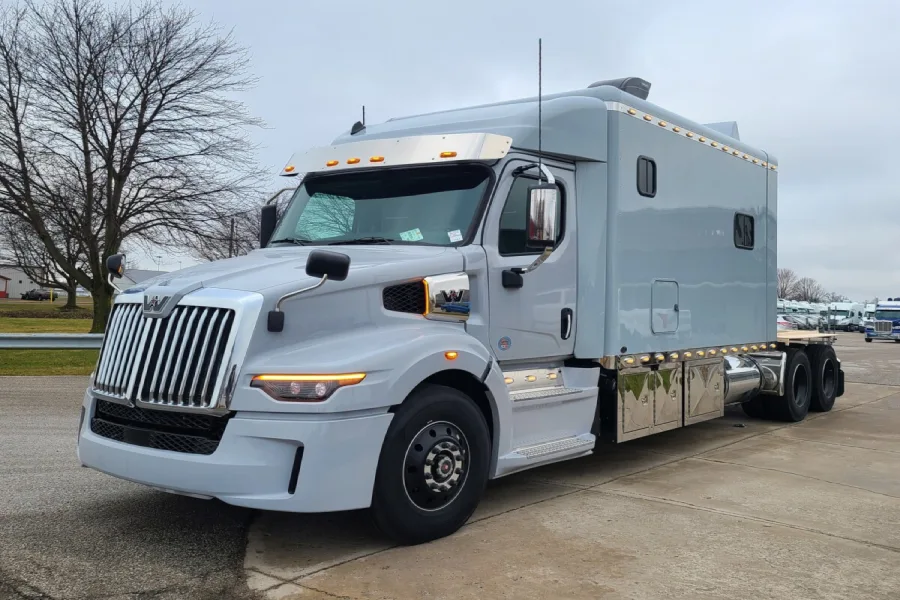Since 2017, the Commercial Driver’s License (CDL) non-domiciled program has allowed drivers residing in one state or even foreign nationals—to legally obtain a CDL in another state. Initially designed to provide flexibility for domestic drivers, this program evolved to include non-U.S. residents, raising questions about work authorization, safety, and regulatory compliance.
A 2025 Federal Motor Carrier Safety Administration (FMCSA) audit revealed that over 200,000 non-domiciled CDLs were issued nationwide, with over 25% improperly granted in California alone. This unexpected expansion has triggered regulatory scrutiny and legal battles in Washington D.C.
Emergency Rule on Non-Domiciled CDL Drivers
In September 2025, DOT Secretary Sean P. Duffy announced an emergency interim final rule restricting non-domiciled CDL issuance. Key points include:
-
Immediate halt of new non-domiciled CDL issuance by states.
-
Two-year phase-out plan for existing licenses.
-
Additional requirements like English language proficiency and dual-driver oversight.
This rule aims to curb potential fraud and improve safety on U.S. roads. However, critics argue that FMCSA lacks sufficient empirical evidence linking non-domiciled status to crash risk, questioning the necessity of such sweeping regulation.
USPS and the Practical Impact of Non-Domiciled CDLs
The U.S. Postal Service (USPS) relies heavily on contractors with non-domiciled CDLs. In October 2025, USPS attempted to ban these drivers from loading facilities, but operational disruption forced a rapid reversal. Key lessons include:
-
Non-domiciled CDL drivers are integral to mail and logistics operations.
-
Abrupt regulatory changes can create nationwide supply chain disruptions.
-
Operational realities often collide with political or emergency rule objectives.
Political and Legal Dimensions in Washington D.C.
The emergency CDL rule has sparked legal challenges:
-
A lawsuit filed in the U.S. Court of Appeals for the D.C. Circuit argues that the DOT rule violates civil rights and overreaches federal authority.
-
Plaintiffs claim the rule affects over 200,000 drivers and their families without sufficient safety justification.
-
FMCSA cited only five crashes allegedly linked to non-citizens, a negligible portion of over 6,000 commercial vehicle incidents in 2022.
This intersection of immigration, transportation policy, and civil liberties illustrates the multidimensional implications of non-domiciled CDL regulation.
Economic Impact on the U.S. Trucking Industry
The removal of non-domiciled CDL drivers could reduce U.S. trucking capacity by 5% or more, potentially worsening freight delays and raising shipping costs. Key economic considerations:
| Metric | Data / Impact |
|---|---|
| Total non-domiciled CDLs issued | 200,000+ |
| Improperly granted licenses in CA | 25%+ |
| Added trucking capacity since 2019 | 310,000+ trucks |
| Potential loss in trucking capacity | ~5% |
| Impact on USPS operations | Missed loads, delivery delays |
Legal Analysis: Civil Rights vs. Safety Regulations
-
Civil Rights: Plaintiffs argue DOT’s rule may constitute discrimination based on immigration status, violating federal protections.
-
Regulatory Authority: DOT and FMCSA maintain the rule is essential for road safety and compliance with employment law.
-
Evidence Gap: Court filings highlight insufficient empirical data linking non-domiciled status to crash frequency.
The legal outcome will shape federal authority over immigrant labor in critical industries, and set precedent for how emergency regulations can be contested.
Conclusion
The CDL Non-Domiciled debate sits at the crossroads of transportation policy, immigration law, and labor rights. With ongoing legal challenges in Washington D.C., the ultimate resolution will influence federal regulatory authority, industry operations, and the livelihoods of hundreds of thousands of drivers.
For policymakers, operators, and legal experts, this case highlights the need for data-driven regulation and careful consideration of civil liberties versus public safety.
FAQ
What is a CDL Non-Domiciled License?
A CDL Non-Domiciled License allows drivers to obtain a commercial license in a state where they do not reside. It can include foreign nationals with proper work authorization.
Who is affected by the DOT emergency rule?
Approximately 200,000 drivers, mostly immigrants or non-resident U.S. workers, could be affected by restrictions or invalidation of their CDLs.
Why did FMCSA implement this rule?
FMCSA cites safety concerns and fraud prevention, though critics argue the data is insufficient to justify emergency action.
Can non-domiciled CDL drivers challenge the rule legally?
Yes. A lawsuit is already filed in the D.C. Circuit, claiming violation of civil rights and lack of evidence supporting the rule.
How does this affect trucking and USPS operations?
The rule threatens capacity reductions, supply chain delays, and logistical disruption in postal and freight networks nationwide.

